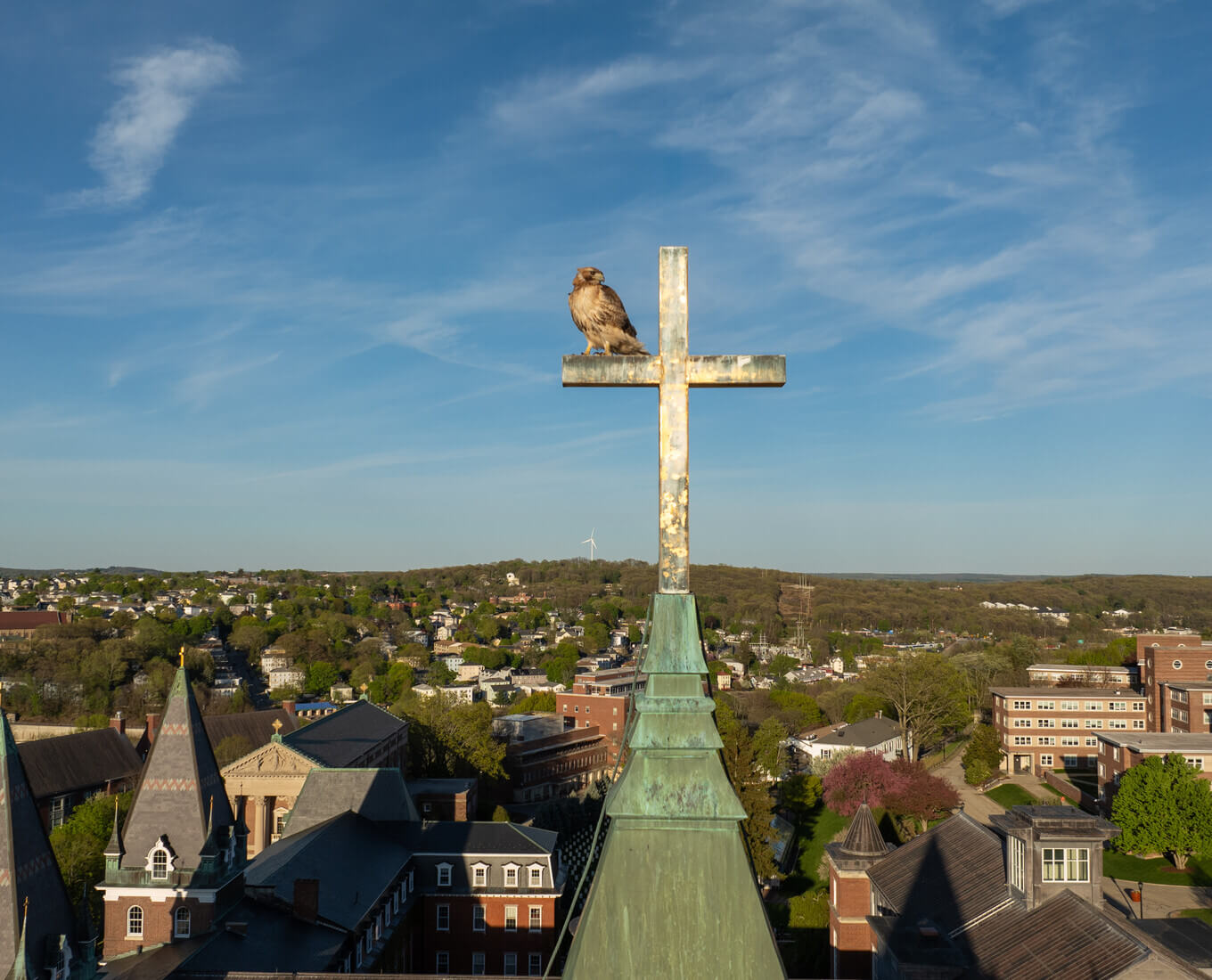WORCESTER, Mass. – The National Science Foundation (NSF) has awarded a grant of $586,509 to the College of the Holy Cross for support of a scholarship program that will aid academically promising students from low income families who are interested in studying the sciences. The program, titled "Clavius Scholars Program" is under the direction of Richard S. Herrick, professor of chemistry and science coordinator; De-Ping Yang, associate professor of physics; Jane M. Van Doren, professor of chemistry; John T. Anderson, professor and chair of the mathematics department; and Mary Lee S. Ledbetter, professor and chair of the biology department.
"The mission of this program has two main goals," Herrick explains, "to target academically promising students who have financial need, including students from groups underrepresented in the sciences, and to instill in them an appreciation of the process of science and math and a love of learning they will take with them as they leave Holy Cross."
The Clavius Scholars Program will begin with a planning year this fall. As part of the planning process, a pilot program will be operated with six Clavius scholars, whose progress and successes will be closely monitored. Sixteen students will be chosen as Clavius scholars, and enter Holy Cross in Fall 2008. The students will major in biology, chemistry, mathematics/computer science or physics and will be planning a career as a scientist.
The nationwide recruitment for participants in the program will target schools whose students' families have lower incomes, but special emphasis will be put on attracting applicants from the Worcester Public Schools. The admissions office is currently developing recruitment literature that will be distributed to guidance counselors as well as students expressing interest in the sciences.
"My staff will be promoting the program as they visit high schools in Worcester and throughout the country," says Ann McDermott, director of admissions and a major contributor in receiving the grant, "Students wishing to be considered for the program will be instructed to file a letter stating their interest in the Clavius Program."
For students accepted into the program, a series of co-curricular activities such as seminars and research group visits are planned, along with a science writing workshop and other activities. The activities will help students get acclimated to Holy Cross, inspire them about science and math, provide ready access to research opportunities and ensure that they have the appropriate resources to help them choose a future career.
The program is named after Christopher Clavius, S.J. (1538-1612), a Jesuit mathematician, physicist and astronomer. Among other things, Clavius was the first to use the decimal point to separate whole numbers from decimal fractions, contributed to the creation of the Vernier scale for precision measurements, devised the Gregorian calendar to correct the inaccuracies of the Julian calendar, authored a number of commonly used mathematical textbooks, and advocated for the inclusion of mathematics and sciences in the Ratio studiorum, thereby ensuring that those disciplines would be included in Jesuit education throughout the world.
Herrick explains, "For the students, the name Clavius will represent the ideal for mathematical and scientific discovery that they will take with them when they become tomorrow's scientists."
Other major contributors to writing the proposal include: Bill Morse, associate professor of English and associate dean; Tina Chen, director of academic services; and Denise Bell, director of assessment and research.
Holy Cross Receives NSF Grant in Support of New Science Scholarship Program for Low Income Students
Nationwide Recruitment Efforts Will Target Worcester Public Schools
Read Time
2 Minutes


